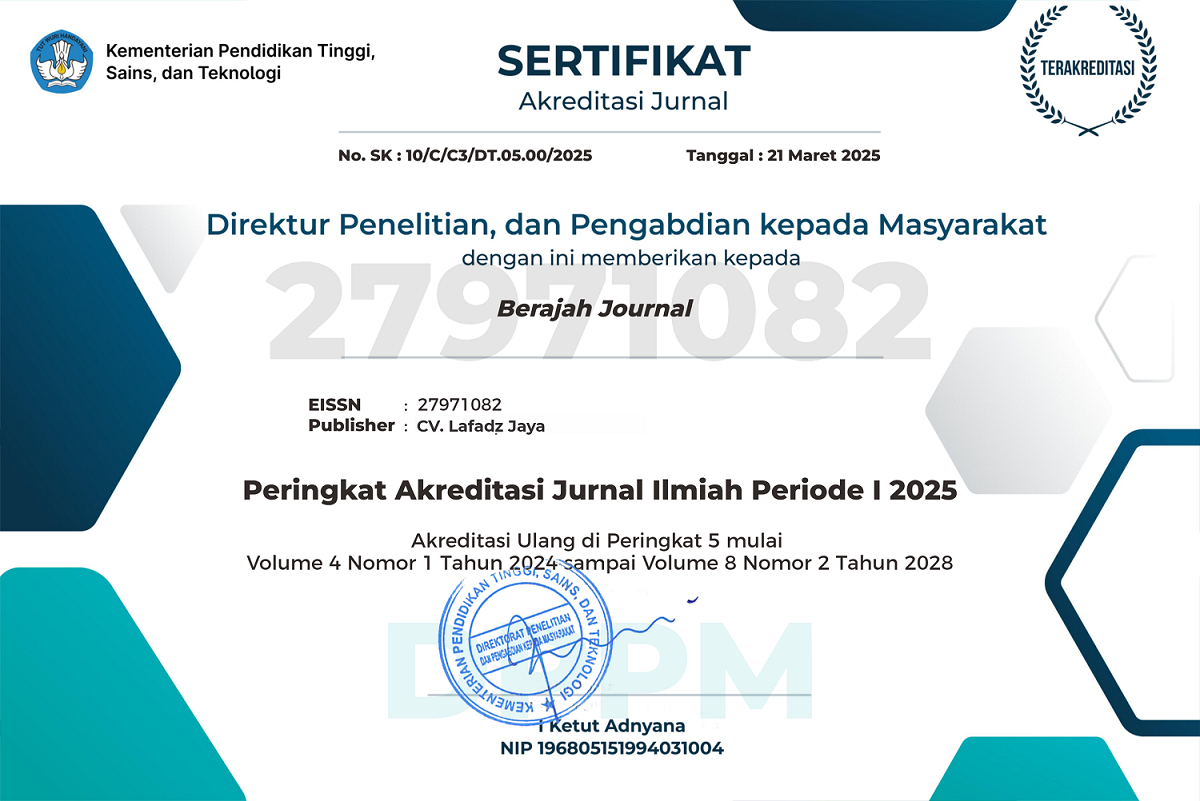PLANTING CORALS SEBAGAI UPAYA MENDUKUNG PENGEMBANGAN EKOWISATA BAHARI BERBASIS SUSTAINABLE TOURISM DI PANTAI PANDAWA
DOI:
https://doi.org/10.47353/bj.v4i4.412Keywords:
planting corals, marine ecotourism, sustainable tourismAbstract
Coral reefs have a mutual advantage between organisms and their environment. It contains enormous and various benefits, both ecologically and economically. Pandawa Beach is one of the beaches in Bali which is very beautiful and has a very high potential for marine ecotourism. There are many activities that can be done and are able to preserve marine ecosystems. One of them is planting corals which aims to build a cultivated coral reef garden area by involving tourists in the hope of being able to preserve nature, increase tourist visits, educate tourists, develop tourism and make Pandawa Beach a coral canter. In addition, efforts are also made to become a sustainable tourism business by preserving nature and increasing education in the field of marine ecotourism, especially coral reef ecosystems. The research method used is a qualitative approach through observation, interviews and collecting documentation during the activity, then described descriptively. Planting corals activities are able to maintain and preserve coral reef ecosystems, develop marine ecotourism and really help develop sustainable tourism, as well as helping the economy of the surrounding community by increasing tourist visits from disseminating information carried out by tourists carrying out planting corals activities on social media.
Downloads
References
Dahuri, R. (2003). Pengelolaan Sumber Daya Wilayah Pesisir dan Lautan Secara Terpadu. Jakarta: PT Pradnya Paramita.
Deddy, B., Zamdial, T. A., & Mukti Dono, W. (2014) ‘Fakultas pertanian universitas bengkulu desember, 2014’.
Hall, C. M., & Lew, A. A. (2009). Sustainable Tourism: A Geographical Perspective. London: Routledge.
Herwindya, A. Y dan Susilo, E.W.H. (2014) ‘Analisis Manfaat Mangrove dan Terumbu Karang Terhadap Lingkungan Pesisir Serta Implikasinya Pada Pendapatan Nelayan (Studi Emperik Pesisir Pantai Demak)’, Jurnal Ekonomi Manajemen Akuntansi, 21(36), pp. 1–16.
Permana, R. (2017). Ekowisata Bahari: Prinsip, Konsep, dan Implementasi. Yogyakarta: Gadjah Mada University Press.
Sudarmadi, B., & Syahbana, J. A. (2020). Pengembangan Ekowisata Berbasis Konservasi Terumbu Karang di Indonesia. Jurnal Ilmu Kelautan dan Perikanan, 12(1), 45-58.
Suandi, I.N., Halustini, N.M., and Widiarsini, N. (2008) ‘Ilmiah Melalui Teknik Sispem Pada Siswa Sman1’, jurnal Pendidikan dan Pengajaran, (67), pp. 80–88.
Triyuniarthi, A.C. (2011) Konsep ekowisata bahari sebagai pendekatan pengembangan produk wisata berkelanjutan di Pulau Lelei Kepulauan Guraici Kabupaten Balmahera Selatan Maluku Utara. URL: http://etd.repository.ugm.ac.id/penelitian/detail/51588. Diakses tanggal 18 Februari 2023.
UNWTO. (2013). Sustainable Tourism for Development Guidebook. Madrid: United Nations World Tourism Organization.
Wahyuningsih, S. (2021) ‘Potensi mangrove sebagai ekowisata berkelanjutan (Review)’, Jurnal Ilmiah Kemaritiman Nusantara, 1(2), pp. 28–37. Available at: https://ejournal.amc.ac.id/index.ph.
Downloads
Published
How to Cite
Issue
Section
License
Copyright (c) 2024 Ni Kadek Mella Manika Surya Dewi, I Wayan Eka Sudarmawan, A. A. Ayu Arun Suwi Arianty, Luh Eka Susanti

This work is licensed under a Creative Commons Attribution 4.0 International License.






















